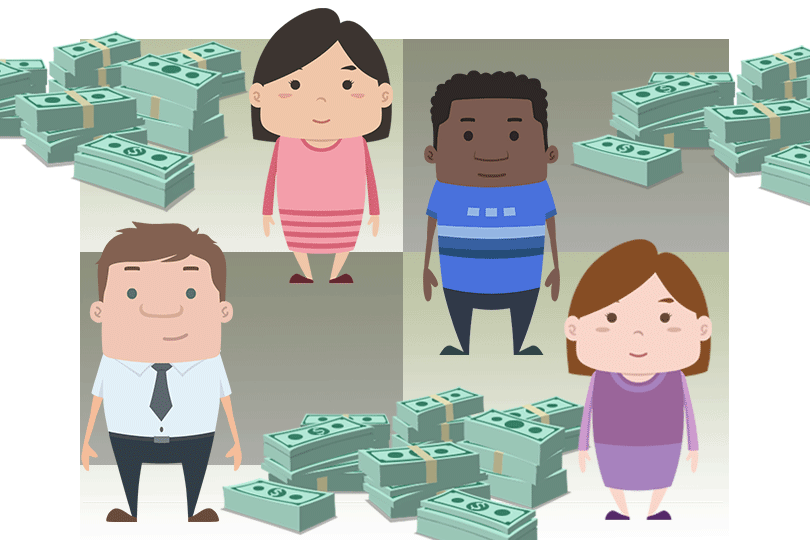What Affects a Home Loan Applicant's Credit the Most?
January 10, 2022
Unlike buying a new vehicle, which begins depreciating as soon as you drive it off the lot, buying a home means anticipating more value from your investment and not less.
That is one reason why the process of applying for a home loan and getting approved can be so difficult when looking from the outside of the process.
The lender has to make sure the borrower is a good credit risk and there are financial benchmarks for doing just that.
Credit approval for any large loan depends a combination of factors. One factor is your employment history; those who haven’t been working very long (less than 24 months in many cases) have a much harder time getting loan approval than those who have a longer work history.
The nature of your income is another factor–if you earn commission, for example, you will be required to have earned those commissions for a minimum time period.
The same is true for contractors who have recently switched to contract-type work and self employed borrowers who also have recently made the jump.
And then there’s your credit report. Credit scores are NOT the sole determination of a borrower’s credit worthiness, as we’ve explored above. But your FICO scores ARE a very important part of that process, and if your credit scores are low your lender will have a hard time justifying the loan.
Working on your credit in advance of your home loan is the best way to get closer to home loan approval.
Credit reporting agencies such as Experian advise consumers that there are four factors that affect your credit scores. Experian ranks these factors from most to least influential (on your credit scores) on its official site as follows:
- Most influential: Payment history (paying bills on time)
- Highly influential: Age and type of credit (establishing a good mix of loan accounts); percent of credit limit used (avoiding “maxing out” cards)
- Moderately influential: Total balances and debt (limiting debt to what’s prudent)
- Less influential: Recent credit behavior and inquiries (applying for new credit); available credit (avoiding opening unneeded credit accounts)
------------------------------
RELATED VIDEOS:
What Is an FHA Loan?
Using an FHA Loan Calculator
Meeting FHA Loan Guidelines Improves Your Chances

FHA Loan Articles
May 14, 2025When you buy a home with an FHA mortgage, you must pay for both mortgage insurance and insurance to protect your property while paying on the loan. There are important nuances to these insurance policies to know before you start. What's the difference between insurance against water damage and flood insurance? That's just one example of the "hidden" expenses of buying your new home to budget for.
May 13, 2025Buying a home with an FHA mortgage means you'll need to know the FHA guidelines about the types of properties you can purchase with an FHA single-family home loan for residential purposes. How well do you understand these rules? Are you truly ready to start house hunting? We examine some key aspects of the process.
May 12, 2025FHA single-family home loans require a minimum 3.5% down payment for typical transactions. Saving for this requires planning and dedication, but it’s not impossible to save enough to make the down payment. How do people typically budget and save for this? Your financial needs and goals will play a big role in how much you decide to set aside for your new home, but here are some options to think about...
April 30, 2025 In a previous post, we discussed why FHA borrowers should carefully consider whether paying for discount points truly serves their best interests, focusing on factors like short-term homeownership, opportunity cost, FHA mortgage insurance, and the prevailing interest rate environment. Discount points are an option for borrowers willing to pay a fee to lower the interest rate by a set amount. This is not right for all borrowers, and you don't want to pay for points you won't benefit from during the loan term.
April 29, 2025Are you considering buying a home with an FHA loan? You'll likely talk to your participating lender about FHA loan "discount points" – fees you pay upfront for a lower interest rate on your mortgage. The idea behind discount points is a straightforward exchange: you spend money today to reduce your interest rate. Typically, one point equals one percent of your total FHA loan. In return, your interest rate might decrease by an amount you and the lender agree upon.







